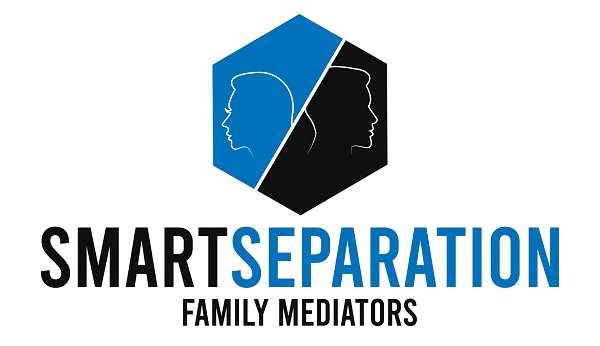What Is Legal Separation in Ontario?
In Ontario, a couple is considered legally separated as soon as they begin living “separate and apart,” even if they remain in the same home due to financial or parenting reasons. There is no need to file paperwork or go to court to be recognized as legally separated.
However, legal separation involves much more than just living apart. To move forward effectively, separated spouses must make key decisions on issues such as:
- Parenting time and decision-making responsibility (custody and access)
- Child support
- Spousal support (if applicable)
- Division of property, including the matrimonial home
These matters can have long-term consequences for both parties and any children involved. That’s why most family law professionals in Ontario strongly recommend drafting a written separation agreement.
The Importance of a Separation Agreement
A separation agreement is a legal contract between two spouses that outlines how they will handle parenting, finances, property division, and support obligations after separation. While it can be created without going to court, it must meet certain legal standards under the Ontario Family Law Act to be considered valid and enforceable.
Having a written agreement offers several benefits:
- Prevents misunderstandings and disputes in the future
- Allows both parties to move forward with clarity
- Can be filed with the court to become enforceable as a court order
- Protects both spouses’ rights and obligations
Creating such an agreement often requires open communication, negotiation, and compromise. That’s where working with a Toronto family mediator becomes especially helpful.
Common Challenges Faced by Separating Couples in Toronto
Separation is rarely easy, and many couples in Toronto face a range of emotional and practical hurdles when trying to navigate this life-changing transition. Without the right support, these challenges can lead to prolonged conflict, costly court proceedings, and lasting damage to relationships—especially when children are involved.
Toronto family mediation is designed to help couples manage these difficulties in a constructive way. Below are some of the most common challenges separating spouses encounter—and how mediation can help address them.
- Communication Breakdowns
By the time couples decide to separate, communication has often deteriorated significantly. Discussions about parenting, finances, or living arrangements can quickly escalate into arguments. This makes it difficult to reach common ground or work toward a solution.
A Toronto family mediator acts as a neutral facilitator, helping each person express their concerns respectfully and hear one another more clearly. Through guided conversations, mediators can help rebuild effective communication, even when trust is low.
- Emotional Distress
Separation involves a complex mix of emotions: anger, grief, guilt, fear, and sometimes relief. These emotions can cloud judgment and make it harder to focus on practical decisions.
Toronto family mediation recognizes the emotional component of separation and provides a supportive, non-adversarial environment where both parties can work through their differences. While mediation is not therapy, it often helps reduce emotional tension and ease stress by focusing on cooperative problem-solving.
- Disputes Over Children, Money, or Property
One of the most difficult parts of any separation involves decisions around:
- Parenting time and decision-making responsibilities
- Child and spousal support
- Division of marital assets, including the matrimonial home
These issues can quickly become contentious and emotionally charged. Mediation allows couples to explore their options and negotiate outcomes that reflect the realities of their lives. Unlike court, which imposes rulings, mediation encourages customized solutions that both parties can accept and follow.
A Toronto family mediator ensures that discussions stay focused, balanced, and productive—even when sensitive issues are involved.
- Fear of Long and Costly Legal Battles
Many couples in Toronto hesitate to separate because they worry about being dragged into expensive, drawn-out court battles. These fears are often well-founded, as litigation can be both financially and emotionally draining.
Mediation offers a more affordable, efficient alternative. By resolving disputes outside the courtroom, couples can avoid much of the cost and stress associated with traditional legal proceedings. In most cases, mediation helps Toronto couples reach an agreement faster, saving time, money, and emotional energy.
What Is Family Mediation and How Does It Work?
In the context of Ontario family law, mediation aligns with the province’s emphasis on encouraging out-of-court settlements, as reflected in the Family Law Rules and various court initiatives across Toronto and the GTA.
A Voluntary, Confidential, and Non-Adversarial Process
One of the core principles of Toronto family mediation is that it is voluntary. Both parties must agree to participate and can choose to stop the process at any time.
Mediation is also confidential—what is said in mediation stays in mediation, and cannot generally be used as evidence in court. This encourages open and honest discussions without fear of legal consequences.
Unlike litigation, mediation is non-adversarial, meaning the goal isn’t to “win” but to find workable, mutually acceptable solutions that meet the needs of everyone involved—including children.
The Role of the Toronto family mediator
A Toronto family mediator is a trained, neutral third party who guides the mediation process. Mediators do not take sides or make decisions for the couple. Instead, they:
- Help each person express their views and understand the other’s perspective
- Ensure discussions remain respectful and productive
- Clarify legal issues within the scope of family law in Ontario
- Suggest creative options for resolution
- Assist in drafting a Memorandum of Understanding or Mediated Separation Agreement
Many Toronto family mediators are accredited by the Ontario Association for Family Mediation (OAFM) and adhere to high ethical and professional standards. While they do not provide legal advice, they often work in collaboration with each party’s lawyer to ensure the final agreement is legally sound.
What Does the Mediation Process Look Like?
Toronto family mediation typically unfolds in several stages, depending on the complexity of the issues and the level of conflict:
- Initial Intake or Screening
Each party meets with the mediator separately to discuss the issues, assess suitability for mediation, and ensure safety—especially in cases involving power imbalances or past abuse. - One-on-One and Joint Sessions
The process may include:- One-on-one (shuttle) sessions where the mediator meets each party separately.
- Joint sessions where both parties work together to negotiate.
Some mediators use a hybrid model, alternating between joint and individual sessions to manage emotional intensity.
- Issue Identification and Goal Setting
The mediator helps the couple identify key issues—such as parenting time, child support, or division of assets—and sets goals for the process. - Negotiation and Problem Solving
Through guided dialogue, the parties explore options and work toward consensus on each issue. - Drafting the Agreement
Once agreement is reached, the mediator prepares a Memorandum of Understanding or separation agreement draft, which can then be reviewed by lawyers before signing.
How Toronto Family Mediation Helps During Legal Separation
Encourages Respectful Communication
Separation often brings out frustration, sadness, and resentment, which can lead to unproductive or hurtful conversations. A Toronto family mediator helps shift the focus from blame to solutions by:
- Encouraging open, respectful dialogue
- Guiding couples toward problem-solving rather than finger-pointing
- Reducing emotional stress through neutral facilitation
This collaborative environment not only helps resolve disputes more effectively, but also sets the tone for future co-parenting or interactions.
Offers a Cost-Effective Alternative to Court
Litigating a separation in Toronto can be costly and time-consuming. Legal fees, court appearances, and expert reports can add up quickly.
Mediation offers a much more affordable option:
- Sessions are typically charged at an hourly rate and shared between both parties
- Fewer professionals are involved, reducing overall expenses
- There is no need for drawn-out court battles or multiple hearings
This makes Toronto family mediation an ideal solution for couples who want a fair process without draining their finances.
Provides a Faster Resolution
Court schedules in Toronto can lead to delays, with some cases taking months—or even years—to be fully resolved. Mediation, on the other hand, is designed for efficiency.
- Couples can schedule sessions based on their availability
- Agreements are often reached in just a few sessions
- The process is flexible and can adapt to the urgency of the issues
For many families, this faster timeline means they can start rebuilding their lives and routines sooner.
Keeps Control in the Hands of the Couple
One of the most empowering aspects of Toronto family mediation is that couples maintain control over the outcomes.
- Mediators guide the conversation but do not make decisions
- Couples craft their own agreements based on what works for them
- There is no judge imposing orders that may not suit the family’s needs
This collaborative process often leads to greater satisfaction and commitment to the final agreement.
Child-Focused Solutions
For separating parents, ensuring the well-being of their children is a top priority. Toronto family mediation places children at the centre of the process by:
- Promoting parenting plans that reflect the best interests of the child, as outlined in Ontario’s Children’s Law Reform Act
- Encouraging respectful co-parenting relationships
- Helping parents work together to maintain stability and consistency for their children
By reducing conflict and fostering cooperation, mediation supports a healthier emotional environment for children during and after separation.
Legal Validity of Mediation Agreements in Ontario
Reviewed and Signed with Independent Legal Advice
While Toronto family mediation helps couples reach fair and practical agreements, the mediator does not provide legal advice. For the agreement to be enforceable under Ontario law, both parties should:
- Receive independent legal advice (ILA) from separate family law lawyers
- Review the terms of the mediated agreement to ensure their rights are protected
- Sign the agreement voluntarily, in writing, with full understanding of its implications
Once these steps are completed, the agreement becomes a legally binding contract that can be enforced in court if necessary.
In many cases, the agreement can also be filed with the court under the Family Law Act, making it equivalent to a court order without having to go through a contested hearing.
The Importance of Legal Review
Even when an agreement is reached in good faith during mediation, it’s critical to consult a lawyer before signing. A family law lawyer will:
- Ensure your rights and entitlements are protected under Ontario law
- Explain any legal or financial consequences of the agreement
- Confirm that full financial disclosure was exchanged
- Help you avoid future disputes due to unclear or incomplete terms
Many family mediators in Toronto work collaboratively with lawyers to support a smooth process from negotiation to finalization.
When Mediation Might Not Be Suitable
While Toronto family mediation is an effective option for many separating couples, it’s not the right solution for every situation. There are circumstances where mediation may not be appropriate or effective—and it’s important to recognize those limits early in the process.
High-Conflict or Abusive Situations
Mediation is built on the foundation of respectful communication and a willingness to negotiate. In cases involving:
- Family violence or abuse
- Coercive control
- Power imbalances that cannot be managed
Mediation may not be safe or effective. Even with a skilled Toronto family mediator, it can be difficult to ensure that both parties feel empowered to speak freely and make informed decisions.
In such cases, it may be more appropriate to seek legal protection through the courts or to work through lawyers who can advocate on behalf of each party.
When One Party Refuses to Participate in Good Faith
Mediation is a voluntary process, and its success depends on both parties being willing to:
- Participate honestly
- Exchange financial information transparently
- Make a genuine effort to reach agreement
If one spouse uses mediation to delay, manipulate, or avoid serious discussion, the process may break down. A mediator can recognize these issues and may recommend discontinuing mediation in favour of another legal route.
Legal Advice Is Still Essential
Even when mediation is appropriate, it does not replace legal advice. A mediator is a neutral facilitator—not a lawyer. It’s vital that both parties:
- Understand their legal rights and obligations under Ontario family law
- Receive independent legal advice before finalizing any agreement
- Get support when determining fair and enforceable terms, especially for parenting, support, and property division
This legal guidance ensures the final agreement is not only practical—but also protects your long-term interests.
A Balanced Approach
Toronto family mediation offers many benefits, but it’s not a one-size-fits-all solution. Recognizing when mediation is not appropriate is just as important as knowing when it is. In some cases, a hybrid approach—combining mediation with legal representation—can provide a safer, more balanced resolution.
Finding a Qualified Toronto family mediator
Look for Accreditation
When searching for a Toronto family mediator, one of the first things to check is whether they are accredited by a recognized professional body, such as the:
- Ontario Association for Family Mediation (OAFM)
- Family Dispute Resolution Institute of Ontario (FDRIO)
- ADR Institute of Ontario (ADRIO)
Accredited mediators (often designated as AccFM) have completed rigorous training in family mediation, adhere to ethical standards, and are required to engage in continuing education to maintain their credentials.
Choose a Mediator with Ontario Family Law Experience
Family law varies across Canada, so it’s important to work with someone who has experience with separation and divorce matters specific to Ontario. A knowledgeable Toronto family mediator will understand:
- Ontario’s legal framework for parenting, support, and property division
- Local court practices and forms (should the agreement later need to be filed)
- How to tailor mediation solutions to meet legal requirements under the Family Law Act, Children’s Law Reform Act, and Divorce Act
Some mediators also have a background in law or social work, offering additional insights into both legal and emotional aspects of the process.
Where to Start Your Search
You can begin your search for a qualified Toronto family mediator by:
- Visiting the OAFM Directory to search for accredited professionals
- Asking your family lawyer for recommendations
- Looking for mediators who specialize in high-conflict cases, parenting coordination, or financial negotiations—depending on your specific needs
Don’t hesitate to schedule an initial consultation to discuss your situation and ask about the mediator’s approach, availability, and fees.
As an experienced family and divorce mediator in Toronto, I often write blogs to provide insights, tips, and resources on family mediation and divorce in Ontario. Follow my blog to stay informed and empowered during challenging times.



